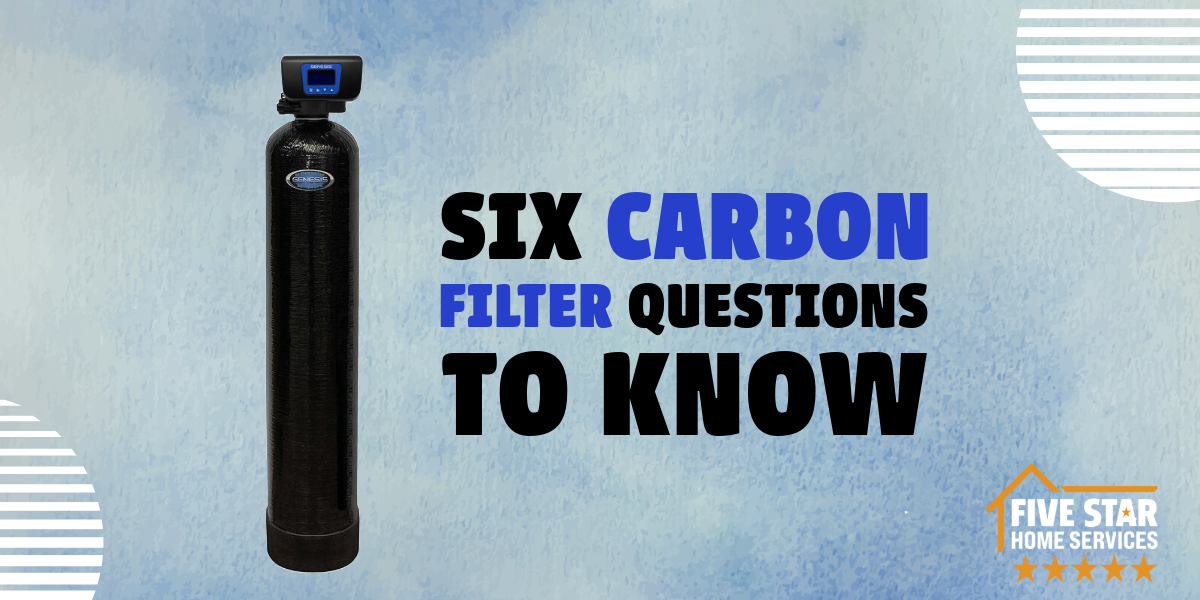Clean, safe, and great-tasting water isn’t a luxury—it’s a necessity. If you’re looking for an easy way to improve your home’s water quality, a carbon filter is one of the most effective solutions available. These filters remove contaminants, odors, and impurities, leaving you with fresh, clean water straight from the tap.
1. What Is a Carbon Filter, and Why Do You Need One?
A carbon filter is a type of water filtration system that uses activated carbon to improve water quality. It removes harmful contaminants and unwanted odors, leaving your water cleaner and fresher. Whether you’re drinking from the tap or washing your hands, you’ll notice the difference.
Installing a carbon filter comes with many benefits. It eliminates chlorine, metallic flavors, and unpleasant smells, making your water more enjoyable. It also removes common contaminants like chlorine, pesticides, and volatile organic compounds (VOCs), making your water safer for your family. More than just an upgrade, a carbon filter is a smart way to protect your home’s water supply.
2. What Does a Carbon Filter Do?
A carbon filter traps contaminants in its activated carbon material, similar to how a sponge soaks up water. As water flows through the filter, chemicals, chlorine, herbicides, and VOCs get absorbed, leaving cleaner, fresher water behind.
These filters also remove unpleasant tastes and odors, ensuring every glass of water is crisp and clean. Whether you’re cooking, drinking, or bathing, the improvement in water quality is noticeable.
3. How Does a Carbon Filter Work?
Carbon filters use activated carbon, a highly porous material, to trap impurities. The activation process creates millions of tiny pores, increasing the carbon’s surface area to absorb harmful chemicals and contaminants.
As water flows through the filter, these impurities bind to the carbon while clean water passes through. This simple yet effective process has been trusted for decades to provide safer, better-tasting water.
4. How Much Does a Carbon Filter Cost?
If you’re wondering about carbon filter cost, prices vary depending on size, type, and function. Here’s a general breakdown:
Filter Costs
- Undersink Carbon Filters (for targeted water filtration): $50–$150
- Whole-House Carbon Filters (for clean water from every tap): $300–$2,500 or more, depending on the brand and capacity
Installation Costs
The cost to install a carbon filter ranges from $200–$500. Smaller filters can sometimes be DIY-installed, but we recommend leaving larger, whole-house systems to the professionals to ensure a proper setup.
Maintenance Costs
Carbon filters require regular maintenance to keep them effective. Here’s what to budget annually for replacements:
- Undersink Filters: $30–$100 per year
- Whole-House Filters: $50–$125 per year
Total Cost Overview
For the filter, installation, and first-year maintenance, here’s what to expect in Columbus, Dayton, and Cincinnati:
- Undersink Carbon Filters: $280–$750
- Whole-House Carbon Filters: $800–$2,500
The exact cost depends on the filter’s size, quality, and complexity of installation.
5. What Does a Carbon Filter Remove?
Carbon filters are highly effective at targeting and removing a wide range of contaminants, making your water taste and smell much better while improving its safety. Typical impurities a carbon filter removes include:
- Chlorine (responsible for the chemical taste in many municipal water supplies)
- Herbicides and Pesticides often found in untreated water
- VOCs (volatile organic compounds), which can enter water through industrial pollution
- Particles and Debris (like dirt, rust, or sand)
While they’re excellent at tackling these issues, carbon filters might not address heavier contaminants like lead or bacteria, so it’s worth testing your home’s water quality beforehand to see if additional solutions are needed.
6. How Long Does a Carbon Filter Last?
The lifespan of a carbon filter depends on its size, usage, and the quality of your water. Generally:
- Under-Sink Filters last around 6–12 months before needing replacement.
- Whole-House Filters can last 12–18 months, but high usage or heavily contaminated water may shorten this timeline.
Replacing your filter on schedule is key to maintaining its effectiveness, so keep an eye on the manufacturer’s guidelines.
7. What Carbon Filter Should I Get?
Not all carbon filters are created equal, so how do you find the right one? Here are some key factors to consider:
- Water Quality: Have your water tested to identify any contaminants. This helps you choose a filter designed to target those specific issues.
- Household Size: Larger households often need filters with higher capacity to ensure optimal performance.
- Filter Type: Decide whether you want to go with an under-sink filter for targeted filtration or a whole-house filter for all-in-one coverage.
- Brand Quality: Stick to trusted brands known for reliable performance and high-quality products.
Still unsure? Don’t stress! At Five Star, we’re here to help. Our experienced team can recommend the perfect filter for your home and handle the installation for you.
Don’t Wait—Start Enjoying Better Water Today
Adding a carbon filter to your home is an investment in your health, comfort, and overall quality of life. At Five Star, we specialize in making that process effortless. From choosing the right carbon filter to flawless installation, Five Star service is just one call away.
Need help deciding or ready to take the next step? Call us at (833) 405-8009 or book online now. Clean, refreshing water is closer than you think—so why wait? When you can’t wait to have it fixed, just call Five Star!


